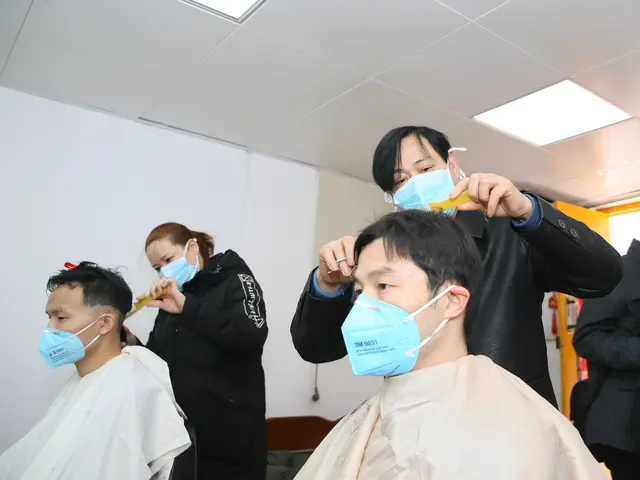Si Kaixian started packing after being asked to cut hair for a medical team assigned to Hubei, the hardest-hit province by the novel coronavirus in central China.
Si and his wife have run a small barbershop for over 20 years across the street from the Anhui Provincial Hospital in east China's Anhui Province.
As all barbershops had been suspended amid the epidemic, the hospital called the couple for help to cut hair for more than 130 medics who were about to leave for the frontline for the treatment of patients with the novel coronavirus disease (COVID-19) in Hubei.
"I thought we would be going with the team, so I called my relatives to take care of my kids before heading to the barbershop with my baggage," said Si, 44.
Si was familiar with the medics, many of whom were regular customers. They called him "Xiaosi Shifu," meaning "master the little fourth," because he was the fourth child of his family.
He was told that the hospital had received an urgent order to send a medical team to Hubei, and the medics were informed of their departure with only a few hours to spare.
The medics chatted and laughed as usual while waiting for their haircut. But when they sat on the chair, most of them lowered their heads, falling in silence.
"For them, the haircut was more like a ceremony," Si said. "I couldn't read their faces because they all wore masks. I didn't know what or who they were thinking about."
Although they had the haircut simply to reduce the chances of being infected, Si asked everyone about their preferred hairstyle. He knew the young men and women, many of whom were born in the 1990s, cared a lot about their images.
To his surprise, all of them, both male and female, answered, "The shorter, the better."
Some people shed tears, including a bride-to-be who had planned to have wedding photos taken.
"She pointed at the ponytail that reached her waist, asking me to cut at the rubber band," Si recalled, adding that she picked up and saved some of the cut hair as a commemoration before leaving.
From 9 a.m. to 1:30 p.m., the couple cut the medical workers' hair one by one, refusing to take any money.
"They left home to support Hubei, and we wanted to support them, in our way," he said. "How I wish I could go with them and serve all the medics in the frontline!"
By March 1, more than 40,000 medical personnel, including those from the military, had joined the epidemic control battle in Hubei as the number of confirmed COVID-19 cases in the province had surpassed 67,000, according to the national health authority.
Si expects his barbershop to reopen and hopes the medics will return soon for a new haircut.
"I'm desperate to hear their stories from Hubei," he said.
(by Xinhua writers Lyu Qiuping, Wang Aona)
 简体中文
简体中文

